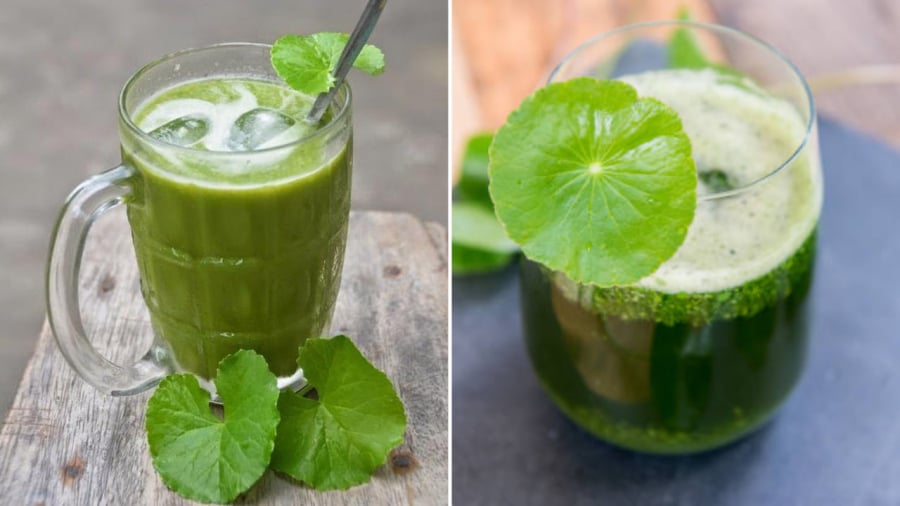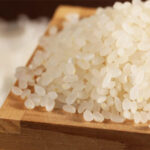Pennywort drink is a popular summer cooler enjoyed by many. When consumed appropriately, this drink offers a plethora of health benefits.
Understanding the Benefits of Pennywort Drink for Human Health
In Vietnamese cuisine, pennywort is a humble herb often used in daily meals and traditional folk remedies. It is a rich source of vitamins A, C, B1, and B2, as well as minerals like calcium, iron, and zinc. Incorporating pennywort drink into your routine in a balanced manner can offer a range of advantages for your well-being.
- Cooling and Detoxifying Properties
Pennywort possesses cooling properties, making it ideal for detoxification. It helps cleanse the liver and supports the elimination of toxins through urine. During hot summers, it provides a refreshing and cooling sensation while preventing heat-related skin issues like rashes and pimples.
- Skin Care and Anti-Aging
Flavonoids and vitamin C in pennywort act as potent antioxidants, shielding your skin from UV damage and delaying signs of aging. The drink also stimulates collagen production for supple skin. Additionally, vitamins A and C help fade scars and reduce pigmentation issues.

- Digestive Support and Weight Management
Rich in fiber, pennywort drink improves digestion and prevents constipation. Consuming it before meals induces a sense of fullness, curbs overeating, and boosts metabolism, aiding in burning excess fat. Thus, it contributes to weight control and maintaining a slender figure.
- Cardiovascular and Cognitive Health
Pennywort contains compounds like asiaticoside, which enhance blood circulation and lower bad cholesterol, thereby promoting heart health. It is also beneficial for individuals with mentally demanding jobs, as it reduces stress and enhances memory.
- Immune System Boost
Abundant in vitamin C and iron, pennywort drink strengthens the immune system, guarding against common ailments like flu and infections. It also aids in post-illness recovery.
Who Should Refrain from Drinking Pennywort Water
While pennywort water offers health benefits, it may not suit everyone.
- Pregnant and Breastfeeding Women
Pregnant women, especially during the first trimester, should avoid consuming pennywort due to its cooling nature, which could lead to stomach discomfort, diarrhea, or potential impacts on the fetus. Breastfeeding mothers should also consult a doctor before consuming pennywort, as it may affect milk quality.
- Individuals with a Cold Constitution or Prone to Stomach Discomfort
As mentioned, pennywort has cooling properties, so those with a weak digestive system, prone to stomach discomfort or diarrhea, should refrain from excessive consumption. While pennywort drink is beneficial, drinking it cold or in large quantities may cause stomach pain and bloating.
- Diabetics on Medication
Pennywort lowers blood sugar levels, so individuals taking diabetes medication should exercise caution. Combining pennywort with these drugs may lead to a significant drop in blood sugar, posing health risks.
- Individuals Taking Sedatives or Anti-Seizure Medication
Pennywort can interact with certain sedatives and anti-seizure medications, reducing their effectiveness. Consult your doctor before incorporating pennywort into your routine while on prescription medication.
- Pre- and Post-Surgery Patients
Pennywort may influence blood clotting, so it is advisable for individuals preparing for surgery or those who have recently undergone a surgical procedure to refrain from consuming pennywort at least two weeks before and after the surgery.
Is It Healthy to Drink Pennywort Water Daily?
According to the Sức khỏe & Đời sống newspaper, Dr. Nguyen Hong Siem stated that there is no precise research on the amount of pennywort consumption that may lead to health issues. However, excessive intake of any substance is generally not recommended. Prolonged and excessive consumption of pennywort may cause complications for blood cells, kidney cells, and liver cells. Therefore, even though pennywort offers health benefits, moderation is key.
For healthy individuals, a daily intake of one cup of pennywort drink (approximately 40 grams of pennywort) is suggested, but it should not be consumed continuously for more than a month. If you wish to continue, a minimum break of two weeks is recommended.
With this information, we hope to have answered your question about the benefits and considerations of drinking pennywort water during the summer. Remember to consume it in moderation to maintain a healthy balance and avoid any potential adverse effects.
The Green Gold: Unveiling the $400 Million Agricultural Export from Vietnam to the US and Its Surprising Health Benefits.
For over two decades, Vietnam has dominated the global pepper industry, leading in both production and exports. In the first quarter of 2025, the United States, our top market, imported an impressive 10,278 tons of Vietnamese pepper. While pepper is a staple in many Vietnamese households, not many are aware of its precious medicinal value and the plethora of health benefits it offers.





































